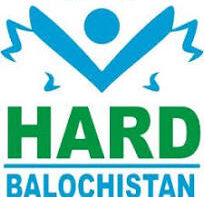HEALTH AND RURAL DEVELOPMENT BALOCHISTAN
Health And Rural Development (HARD) Balochistan is non-profit, non-political and non-religious organisation of Pakistan. The organisation is registered under Voluntarily Social Welfare Act 1961 and in Society Act 1860. The organisation is youth and 80% women led and working on a broad range of issues from health, education, Nutrition, human rights, livelihood, sexual violence against children, democratic governance to girls and women rights and advocacy.

Illuminating Health: Rural Balochistan’s Journey to Healthier Living
In the expansive reaches of rural Balochistan, Pakistan’s largest province, communities grapple with formidable health challenges amidst breathtaking landscapes. Yet, amidst the rugged terrain and sparse populations, a silent threat lurks within many households: the pervasive use of kerosene oil. This ubiquitous fuel, while vital for lighting and cooking in areas devoid of electricity, carries with it a shadowy legacy of health risks that demand attention.
Unveiling Rural Balochistan’s Health Struggles
Remote Balochistan bears witness to a tale of healthcare adversity, where the echo of underfunded clinics and scarce medical personnel reverberates across vast distances. In this narrative, preventable diseases often find fertile ground, maternal and infant mortality rates remain stubbornly high, and the dream of quality healthcare seems distant.
Shedding Light on Kerosene Oil’s Dark Side
Within the humble abodes of rural Balochistan, kerosene oil stands as both a beacon of light and a harbinger of health woes. The fumes from burning this fuel permeate the air, leading to respiratory distress and exacerbating existing conditions. Furthermore, accidental ingestion, often mistaken for water, brings its own set of perils, while the risk of fires looms large, threatening lives and livelihoods.
Envisioning Solutions: A Call to Collective Action
To rewrite Balochistan’s health narrative, a multifaceted strategy beckons:
- Empowerment through Education: Educating communities about the safe use of kerosene oil and promoting preventive healthcare practices can pave the way for healthier living.
- Innovative Energy Alternatives: Introducing sustainable energy solutions, such as solar power and improved cookstoves, can reduce dependence on kerosene oil and mitigate associated health risks.
- Investment in Infrastructure: Strengthening healthcare infrastructure, from clinics to telemedicine facilities, is pivotal in ensuring equitable access to quality healthcare services.
- Regulatory Vigilance: Enforcing stringent safety standards and regulations around kerosene oil usage is imperative to safeguarding public health and preventing accidents.
Embracing the Journey Towards Healthier Living
In the expansive reaches of rural Balochistan, Pakistan’s largest province, communities grapple with formidable health challenges amidst breathtaking landscapes. Yet, amidst the rugged terrain and sparse populations, a silent threat lurks within many households: the pervasive use of kerosene oil. This ubiquitous fuel, while vital for lighting and cooking in areas devoid of electricity, carries with it a shadowy legacy of health risks that demand attention.
Unveiling Rural Balochistan’s Health Struggles
Remote Balochistan bears witness to a tale of healthcare adversity, where the echo of underfunded clinics and scarce medical personnel reverberates across vast distances. In this narrative, preventable diseases often find fertile ground, maternal and infant mortality rates remain stubbornly high, and the dream of quality healthcare seems distant.
Shedding Light on Kerosene Oil’s Dark Side
Within the humble abodes of rural Balochistan, kerosene oil stands as both a beacon of light and a harbinger of health woes. The fumes from burning this fuel permeate the air, leading to respiratory distress and exacerbating existing conditions. Furthermore, accidental ingestion, often mistaken for water, brings its own set of perils, while the risk of fires looms large, threatening lives and livelihoods.
Envisioning Solutions: A Call to Collective Action
To rewrite Balochistan’s health narrative, a multifaceted strategy beckons:
- Empowerment through Education: Educating communities about the safe use of kerosene oil and promoting preventive healthcare practices can pave the way for healthier living.
- Innovative Energy Alternatives: Introducing sustainable energy solutions, such as solar power and improved cookstoves, can reduce dependence on kerosene oil and mitigate associated health risks.
- Investment in Infrastructure: Strengthening healthcare infrastructure, from clinics to telemedicine facilities, is pivotal in ensuring equitable access to quality healthcare services.
- Regulatory Vigilance: Enforcing stringent safety standards and regulations around kerosene oil usage is imperative to safeguarding public health and preventing accidents.
Embracing the Journey Towards Healthier Living
In the heart of Balochistan’s remotest corners lies a beacon of hope—a vision of vibrant health and empowered communities. By illuminating the path with education, innovation, and infrastructure, we embark on a transformative journey towards healthier, brighter tomorrows for rural Balochistan. Together, let us dare to envision a future where every individual can thrive, free from the shadows of preventable health risks.
